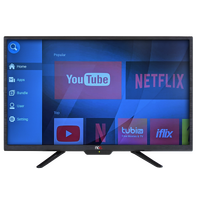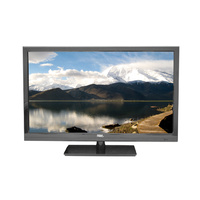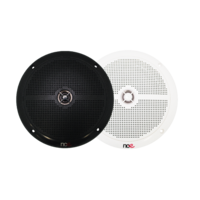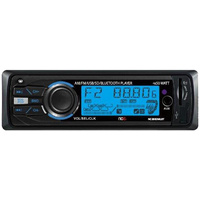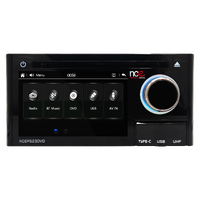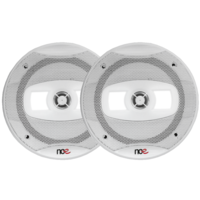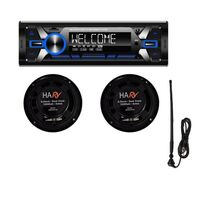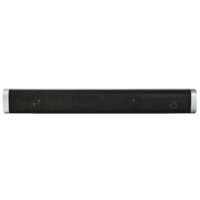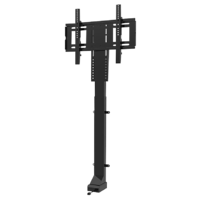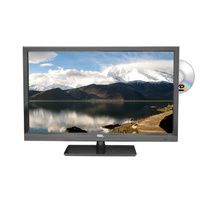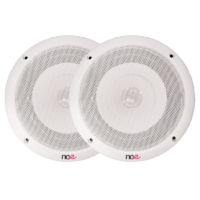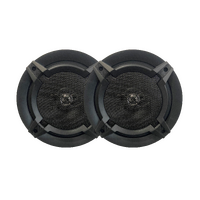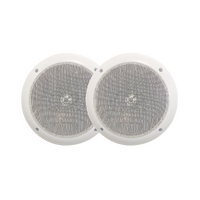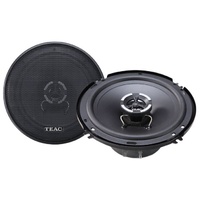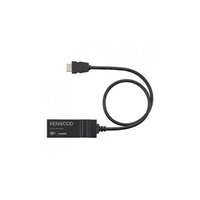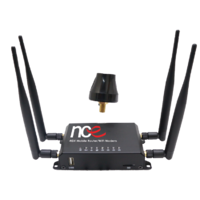Filter By Colour
- White
- Black
-
Filter By Category
- Electronic Accessories (1)
- Audio (1)
-
Filter By Stock
- In Stock (24)
Filter By Brand
- Kenwood Products | Home and RV (1)
- NCE (21)
- TEAC (1)
Caravan TV, Audio & WiFi
Stay connected and entertained wherever you travel with our caravan TV, audio, and WiFi range. From high-definition caravan TVs and premium speakers to reliable mobile WiFi systems, Home & RV has the technology to make every trip more enjoyable.
Caravan TV, Audio & WiFi: Entertainment Solutions for Life on the Road
Make your van feel like home with entertainment that works anywhere in Australia. NCE supplies 12 V smart TVs, antennas, soundbars, speakers, radios, multimedia players and connectivity solutions that are compact, efficient and built for vibration, heat and dust. This deep-dive covers sizing, mounting, wiring, WiFi planning, power budgeting and troubleshooting so you can enjoy streaming, free-to-air and quality sound on every trip.
12 V Caravan TVs — what to look for
A purpose-built 12 V TV runs directly from your DC system, draws less power than a household set and is designed for rough roads. The NCE 32" Smart Google TV includes Android apps, Chromecast, Google Assistant and Bluetooth casting — stream when you have coverage or WiFi, or switch to free-to-air via antenna.
Size, resolution and viewing distance
- 24–28 inch: compact vans and single beds; short viewing distance.
- 32 inch: the all-rounder for most lounges; balance of screen size and power draw.
- 40+ inch: large lounges or outdoor kitchens; check arm rating, wall space and current draw.
Smart features that matter in a van
- Android TV + Chromecast: access apps and cast from phone/tablet.
- Bluetooth: pair to a 12 V soundbar or head unit for better sound.
- ARC/Optical: single-cable audio to a soundbar or multimedia player.
- Eco presets: reduce backlight for night viewing and save battery.
| TV size | Typical draw (W) | Approx. current at 12 V (A) | Notes |
|---|---|---|---|
| 24–28" | 18–28 W | 1.5–2.3 A | Efficient for long off-grid nights. |
| 32" | 28–45 W | 2.3–3.8 A | Sweet spot for most layouts. |
| 40–43" | 45–65 W | 3.8–5.4 A | Check arm rating and battery capacity. |
Figures are indicative; actual draw varies with brightness, app usage and volume.
Mounting & cabling — safe and tidy
- VESA mount & arm: choose an arm rated for the TV weight and add a positive travel lock.
- Fixing: screw into a backing plate or reinforced stud, not just thin ply.
- Power: use a fused direct 12 V feed; avoid loose cigarette sockets for permanent installs.
- Cabling: short HDMI/optical runs; loom and clip to prevent rattles; leave slack for arm movement.
- Ventilation: keep vents clear — heat shortens panel life.
Free-to-air reception — getting the signal right
A caravan antenna improves live TV in regional and rural areas. Directional antennas offer the best gain when aimed at the transmitter; omnidirectional designs are quicker to set up where signals are strong. Add a low-noise amplifier for long coax runs or multiple TV splits.
| Antenna type | Best for | Strengths | Considerations |
|---|---|---|---|
| Directional | Regional trips & weak signals | Highest gain when aimed correctly | Needs aiming & rescans at each stop |
| Omnidirectional | Holiday parks & strong areas | Fast setup, no aiming | Lower gain in fringe areas |
| Inline amplifier | Long runs & splitters | Boosts before cable losses | Power draw; avoid over-amplification |
Install tips: mount clear of roof clutter (A/C units, racks), route RG6 coax away from 12 V looms, crimp properly and weatherproof exterior joins.
WiFi & streaming in caravans
Streaming needs coverage and data. A typical setup uses a 4G/5G modem plus an external roof antenna to pull in weak signals. Mount the router near the TV cabinet for tidy cabling, power it from a fused 12 V feed, and secure the antenna cable entry with a waterproof gland.
| Quality | Data per hour | Best for | Tips |
|---|---|---|---|
| 480p | ~1 GB | News, cartoons, weak coverage | Enable “data saver” in apps |
| 720p | 1.5–2 GB | Everyday viewing on 24–32" TVs | Good balance of quality & usage |
| 1080p | 2.5–3.5 GB | Movies & sport | Download shows on park WiFi |
- External antennas: improve rural coverage and reduce dropouts.
- Dual-SIM routers: switch carriers as you travel for better uptime.
- Data strategy: cache episodes when you have fast WiFi; cap mobile data in app settings.
Better sound in small spaces
TV speakers are tiny; dialogue suffers. A 12 V soundbar or a pair of 6.5" speakers lifts clarity without taking much room.
- Connection: use HDMI-ARC or optical for one-lead simplicity; Bluetooth or RCA if required.
- Mounting: fix the bar under the TV; keep ports clear; secure cables.
- Speakers: aim tweeters near ear height; avoid drummy thin exterior panels.
Popular picks include the NCE 12 V Premium Soundbar and NCE 6.5" Internal Speakers with LED Lights. For central control, consider the NCE Single Din AM/FM CD DVD Multimedia Player.
| Option | Best for | Strengths | Considerations |
|---|---|---|---|
| 12 V soundbar | Simple upgrade & dialogue clarity | Compact, mounts under TV, direct 12 V | Short cable run needed; use Night Mode in parks |
| 6.5" speakers | Immersive in-van audio | Wide sound; optional LED lighting | Cut-outs & wiring required |
| Single-din head unit | Central control & zones | Bluetooth, USB, aux; integrates with speakers | Match speaker impedance; plan wiring |
Power planning — quick daily estimates
| Scenario | Devices | Hours | Energy (Wh) | Approx. Ah @ 12 V |
|---|---|---|---|---|
| News & weather | 32" TV @ 35 W | 1.0 | 35 | ~3 |
| Movie night | 32" TV 35 W + soundbar 10 W | 2.0 | 90 | ~7.5 |
| Streaming + WiFi | 32" TV 35 W + router 6 W | 2.0 | 82 | ~6.8 |
Add a buffer for standby draws and charging losses. Recharge with solar during the day; reduce screen brightness at night.
Outdoor viewing & weather
- Protection: keep TVs and bars inside or under cover; choose outdoor-rated speakers for annex areas.
- Glare: prefer matte panels; angle the arm away from direct sun.
- Travel: use a screen sleeve; lock the arm; check screws after corrugated roads.
Troubleshooting — fast fixes on the road
- No free-to-air channels: re-aim antenna, check amplifier power, rescan channels, inspect coax connectors.
- Streaming buffers: drop quality to 720p, reposition router/antenna, try alternate carrier (dual-SIM), download shows when on park WiFi.
- No soundbar audio: set TV to ARC/optical, toggle CEC, try Bluetooth/RCA as fallback, check volume caps.
- TV resets on bumps: replace loose 12 V plug with fused hard-wire feed; check earths.
- WiFi dead spots: move router centrally; elevate external antenna; avoid coiling excess RF cable near power.
Australia’s trusted destination for caravan entertainment
From 12 V smart TVs and premium soundbars to space-saving speakers and integrated multimedia players, NCE supplies entertainment solutions built for Australian touring. Visit Home & RV to browse the full range.




